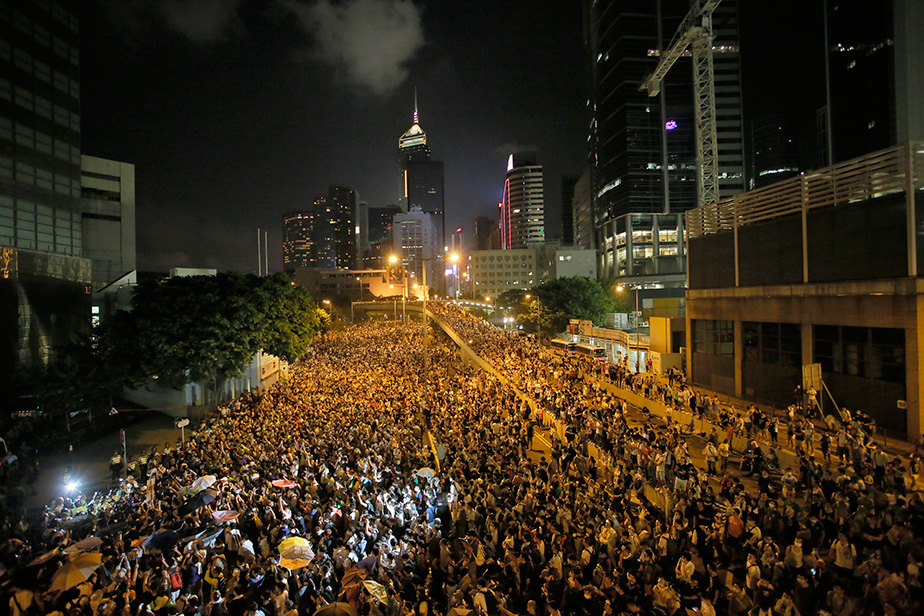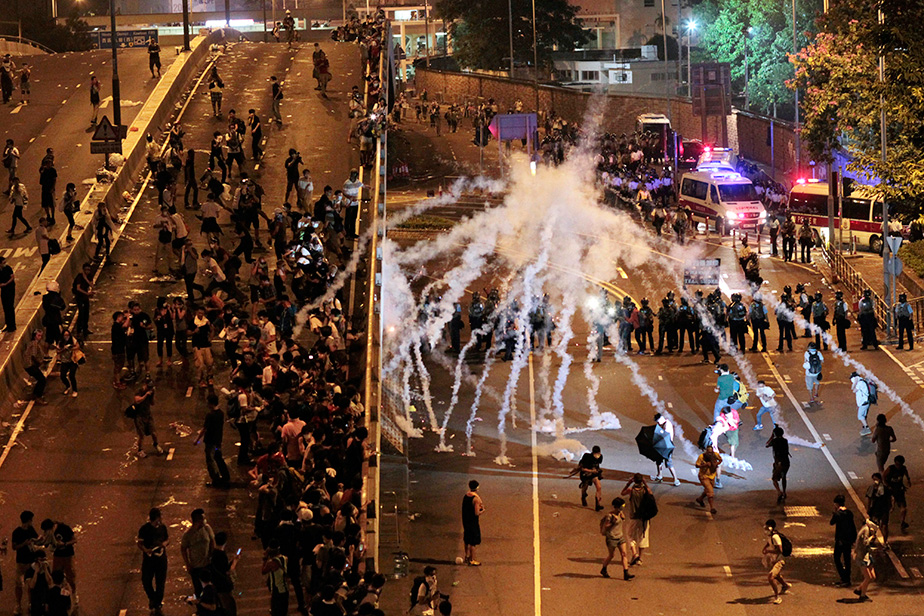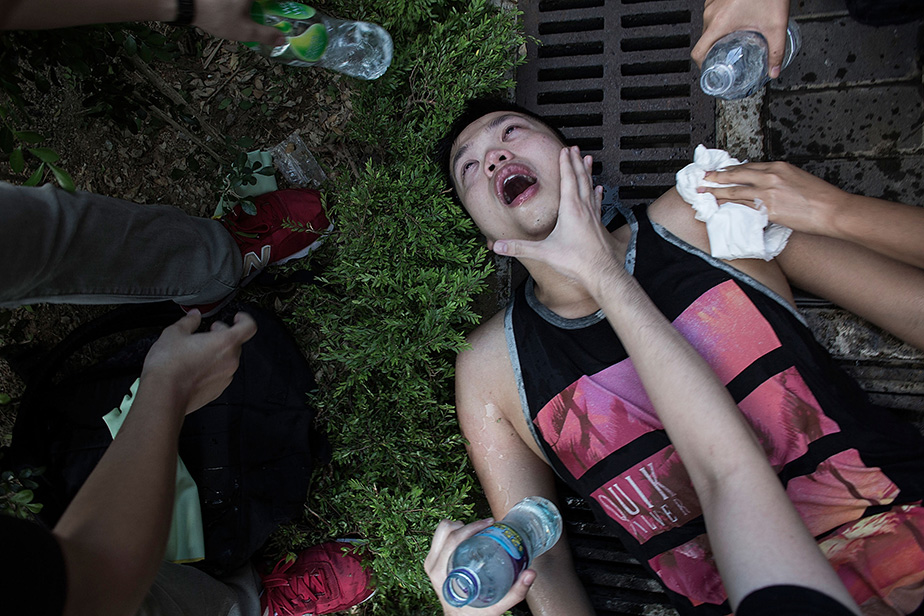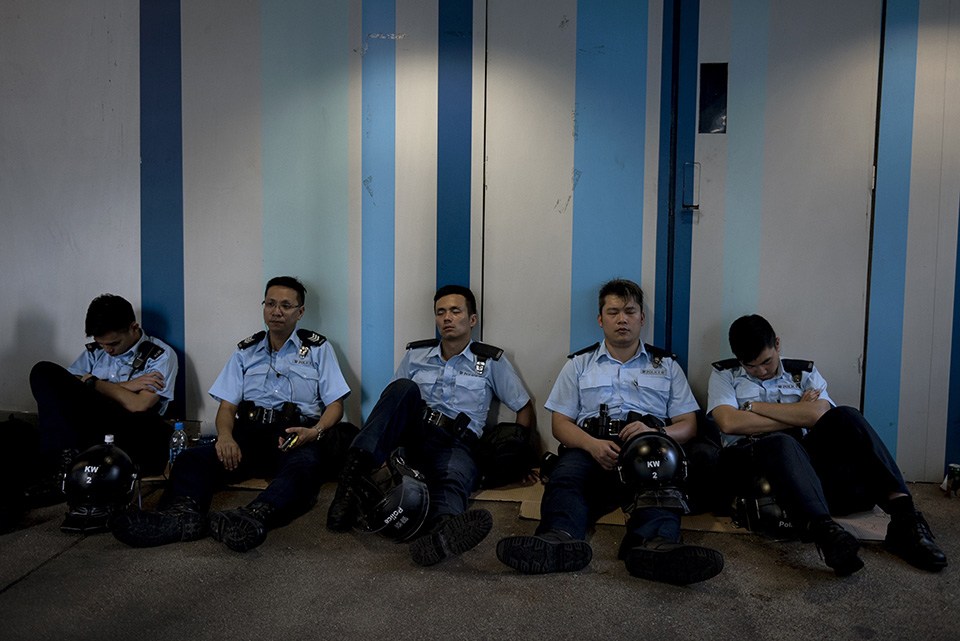Hong Kong protests: In the thick of it
Tens of thousands of demonstrators are occupying Hong Kong's financial district in protest of what they see as Beijing's creeping influence on the way the semiautonomous region is run. CNN's correspondents have been on the ground reporting rising tensions between protesters and police. Full story »

What started as a protest by pro-democracy students escalated into a paralyzing demonstration after riot police tried to clear the streets using tear gas, batons and pepper spray over the weekend. (Photo: Vincent Yu/AP)
CNN’s Ivan Watson was reporting live from the standoff between police and chanting protesters – some pleading on their knees --when tear gas was fired, enveloping the crowd. "Both sides were appealing for calm, and then the tear gas just exploded in the midst of everybody," he said.

Demonstrations began in response to China's decision to allow only Beijing-vetted candidates to stand in the city's 2017 election for the top civil position of chief executive. Protesters say Beijing has gone back on its pledge to allow universal suffrage in Hong Kong, which was promised "a high degree of autonomy" when it was handed back to China by Britain in 1997. Watson said the use of tear gas was unexpected: "People here have never been hit by tear gas before, and it comes as quite a shock to them -- even the use of pepper spray. ... This is a big shock for a city that is famed for its law and order." (Photo: Wally Santana/AP)
.jpg)

Demonstrators' use of umbrellas to protect themselves from choking tear gas and stinging pepper spray has caused the demonstration to be dubbed the "umbrella revolution." Hong Kong authorities say that more than 40 people have been injured. (Photos: Vincent Yu/AP and Lam Yik Fei/Getty Images)
The crackdown by authorities drew defiance and led to an increased number of people taking to the streets. The protests have been called illegal by the Hong Kong and central Chinese governments, and some commentators have expressed fear that Chinese troops could be used to clear the streets, as happened in Beijing's Tiananmen Square in 1989.
CNN's Ivan Watson and Andrew Stevens capture scenes from the demonstrations.

Police officers rest amid the protests. (Photo: Alex Ogle/AFP/Getty Images)
Hong Kong's de facto constitution, the Basic Law, states that Hong Kong will coexist with China as "one country, two systems" for 50 years after the handover of power in 1997. Due to expire in 2047, it states that the city "shall safeguard the rights and freedoms of the residents."
For more
CNN correspondents covering the protests are posting their photographs in Scenes from the field.
For more dramatic images see CNN's protest gallery.
No comments:
Post a Comment